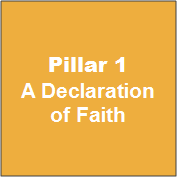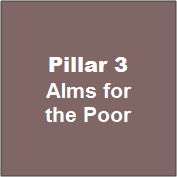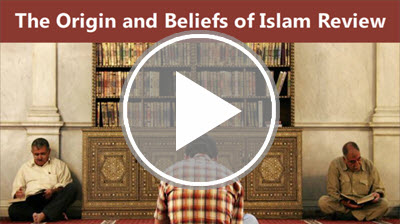The Origin of Islam
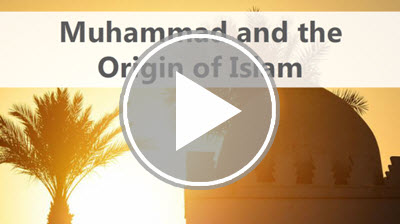
Islam is a fast growing religion with a deep rooted history and culture. An understanding of its origin will allow you to gain an appreciation for the history of this major world religion. In this interactivity, you will learn about Islam's founder, Muhammad, and how he spread the religion throughout the Arabian Peninsula. Click the player button to begin.
View a printable version of this interactivity.
Islamic Beliefs
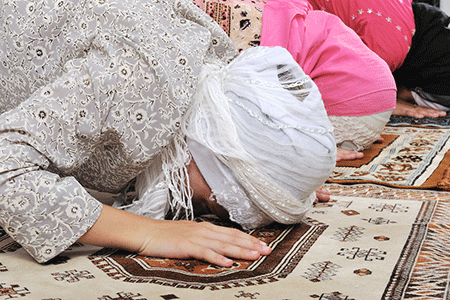
A group of Muslims praying. Muslim prayer
is conducted in the direction of the city of Mecca.
Islam has many beliefs, traditions, and customs, some of which are shared with other world religions, and some of which are unique to Islam. Like Christianity and Judaism, Islam is a monotheistic religion, which means Muslims believe in one God. The Arabic word for God is Allah. In Islam, Allah created all of heaven and Earth. Muslims assert that Islam is the restoration of a true monotheistic religion and completes the teachings of Judaism and Christianity. While Muslims believe Muhammad was the last and greatest prophet sent to Earth by God, they also recognize Judeo-Christian prophets, including Abraham, Moses, and Jesus.
The Islamic religion recognizes a direct relationship between man and God, eliminating the need for priests, as followers communicate with God through prayer. The Muslim holy book, the Qur'an (Koran), is written in Arabic. Translations of it are highly discouraged since Muslims believe no one should deviate from or alter the original content. In Islam, the Qur'an is the word of God as relayed to Muhammad, and it expresses the long established religious beliefs and practices. Many Muslims feel the Qur'an provides consistency and stability in their daily lives.
Many Muslims take the moral code of Islam very seriously, because they believe salvation is only possible by following it. The Islamic moral code touches on every aspect of life, including civic matters, crime, marriage, food, and personal behavior. Some examples of this strict moral code include: Muslims are not permitted to ingest pork products or alcohol; Muslims are not permitted to gamble; Muslims are not permitted to marry non-believers (non-Muslims); and Muslims participate in ritualistic bathing before worship.

